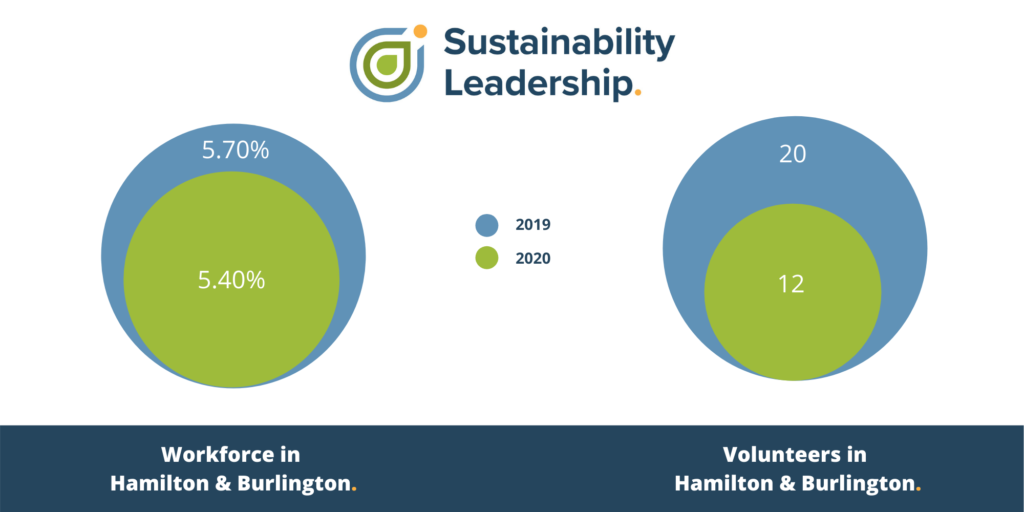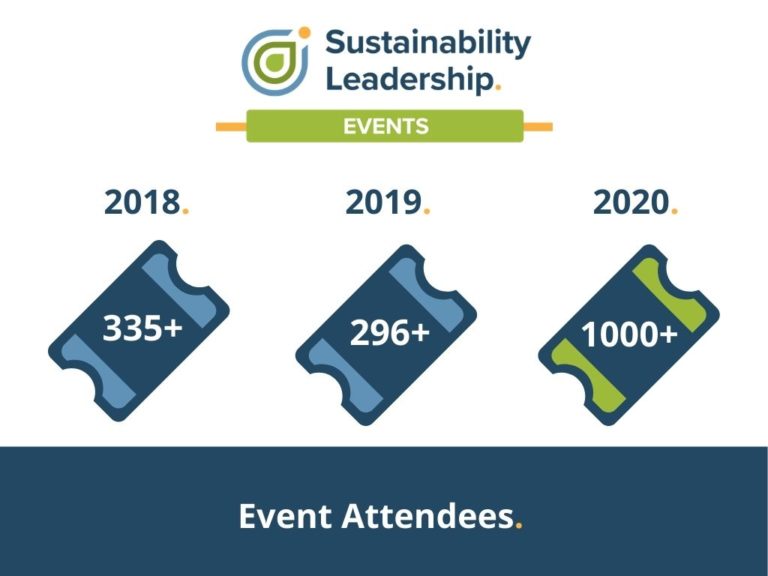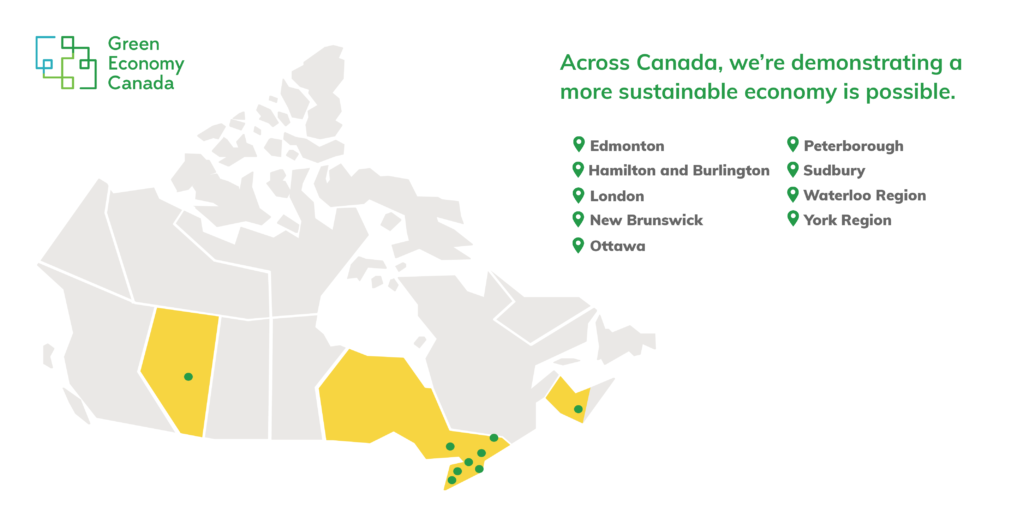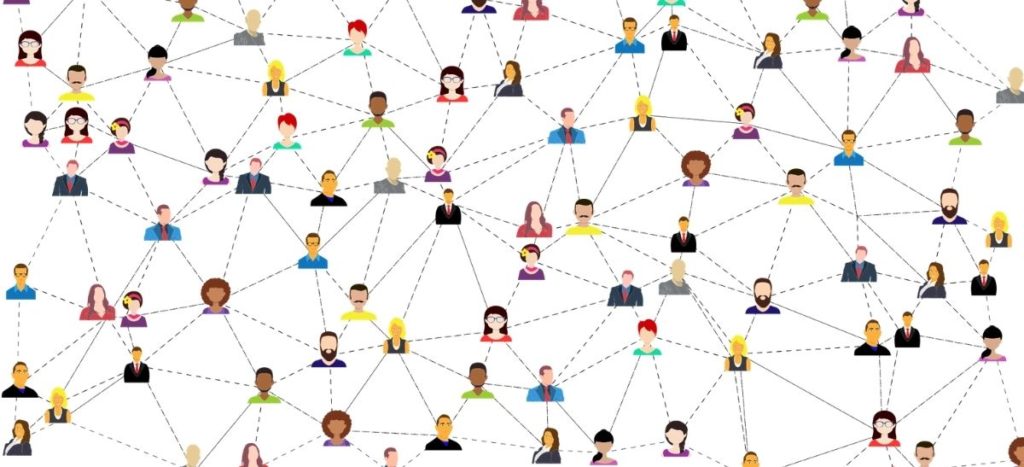Annual Impact Report 2020
2020 Year in Review.
Page Navigation
Year In Review.
Hindsight is 2020 and we learned a lot about how resiliency plays a key role in surviving these difficult times. Sustainable Hamilton Burlington took this concept of resiliency to heart, creating and implementing strategies, resources and actions to better support our communities in 2020.

Events in 2020.
As the gravity of the pandemic set in, we quickly shifted our operations to provide better support for our Members in the early stages of the pandemic by hosting webinars to discuss available funding support for businesses and to address mental health concerns in the shift to working from home.

With businesses slowly beginning to emerge from the first wave of the pandemic, we recognised that sustainability activity was perhaps neglected in the recovery process. We felt it was imperative to stimulate and motivate action, to ensure businesses recovered effectively. We hosted our Annual Evening of Recognition to celebrate and inspire businesses to see the long term impacts of sustainability despite economic downturns. For the first time ever, our event was broadcast on YourTV in Burlington and Cable14 in Hamilton.
Social Impacts in 2020.
We saw more attention being drawn to racial injustices and social inequalities. Although it is ingrained in the culture of our organisation, we wanted to share our involvement with this movement. We formally updated our Equality, Diversity and Inclusion Policy to ensure we are meeting the highest standards. We posted this publicly on our website for transparency and for others to use as a template.
Economic Impacts in 2020.
With the safety of our Members and the public in mind, in-person events were moved into an online format. Although the content can be delivered to a greater audience, the human connection is lost. The Sustainability Leadership Program addressed this concern by implementing a cohort delivery model, allowing businesses to network and collaborate with each other while building their knowledge and skills when it comes to sustainability.
Environmental Impacts in 2020.
Much of the emissions we have seen previously are no longer coming from work facilities. Instead they have been displaced onto the employees and their new place of work – their homes. In 2020, we began developing a framework to help measure these displaced emissions in a work-from-home scenario and compare them to a work-from-office scenario to understand the true emissions impacts of what may become our new normal going forward.
Partnerships in 2020.

Green Economy Canada.
The Sustainability Leadership Program and our Members belong to a larger network led and supported by Green Economy Canada, a national not-for-profit organization dedicated to accelerating Canada’s transition to a vibrant and sustainable low-carbon economy. This growing network consists of seven Green Economy Hubs and over 300 businesses who are taking action on climate change, building sustainability into their operations, and creating a better future for generations to come.
Two new Hubs are slated to launch in Peterborough, Ontario and the province of New Brunswick in early 2021. Work is also underway in Edmonton in partnership with the City of Edmonton’s Corporate Climate Leaders Program. By 2024, Green Economy Canada’s goal is to support 20 Green Economy Hubs across the country, engaging thousands of businesses in changing business-as-usual.
In addition to supporting the launch and growth of Hubs, Green Economy Canada also works to amplify and celebrate our network’s collective impact, raising the profile of businesses in the network who are taking action, and ensuring that policymakers invest to enable businesses to retool for a low-carbon future. Green Economy Canada sits on the Federal Government’s Climate Action Incentive Fund Advisory Committee, and is becoming a go-to resource to advise on the needs and interests of businesses across the network in taking meaningful climate action.
Businesses in Green Economy Hubs, including SLP Members, have reduced over 200,000 tonnes of GHGs – the equivalent of taking over 45,000 cars off the road for one year. They are inspiring others across their communities and across the country to take action to reduce their environmental impacts while strengthening their organizations, engaging their employees, and becoming more resilient.
Our growing national network is demonstrating that a more sustainable economy is possible. Visit greeneconomy.ca to learn more.

Bay Area Climate Change Council.
The Bay Area Climate Change Council (BACCC) is a social impact initiative made up of 14 community leaders from Hamilton and Burlington, including Sustainable Hamilton Burlington as a founding member. BACCC’s vision is for the Bay Area to be a thriving and resilient net zero community by 2050. The mandate of BACCC is to develop and advocate for local climate solutions that will reduce greenhouse gas emissions. In doing so, BACCC provides strategic leadership and function as an ongoing forum for advice, feedback and guidance to the cities of Burlington and Hamilton.
BACCC is supportive of the implementation of a home energy retrofit (HERO) program in the Bay Area and has been coordinating stakeholder engagement with the Centre for Climate Change Management at Mohawk College to help assess opportunities and constraints. BACCC is also working to support active transportation and transit opportunities by examining service gaps between Hamilton and Burlington.

SHB in the Community 2020.
Sustainable Hamilton Burlington continued to provide support to the City of Hamilton and the City of Burlington by giving feedback and supporting their Hamilton Community Energy & Emissions Plan and Burlington Climate Action Plan, respectively.
Despite the focus on ensuring resources and support were available for the safety of the citizens in each city, both municipalities still made progress on developing their plans and implementation strategies. Their leadership shows that sustainability is an integral part of a resilient recovery.



